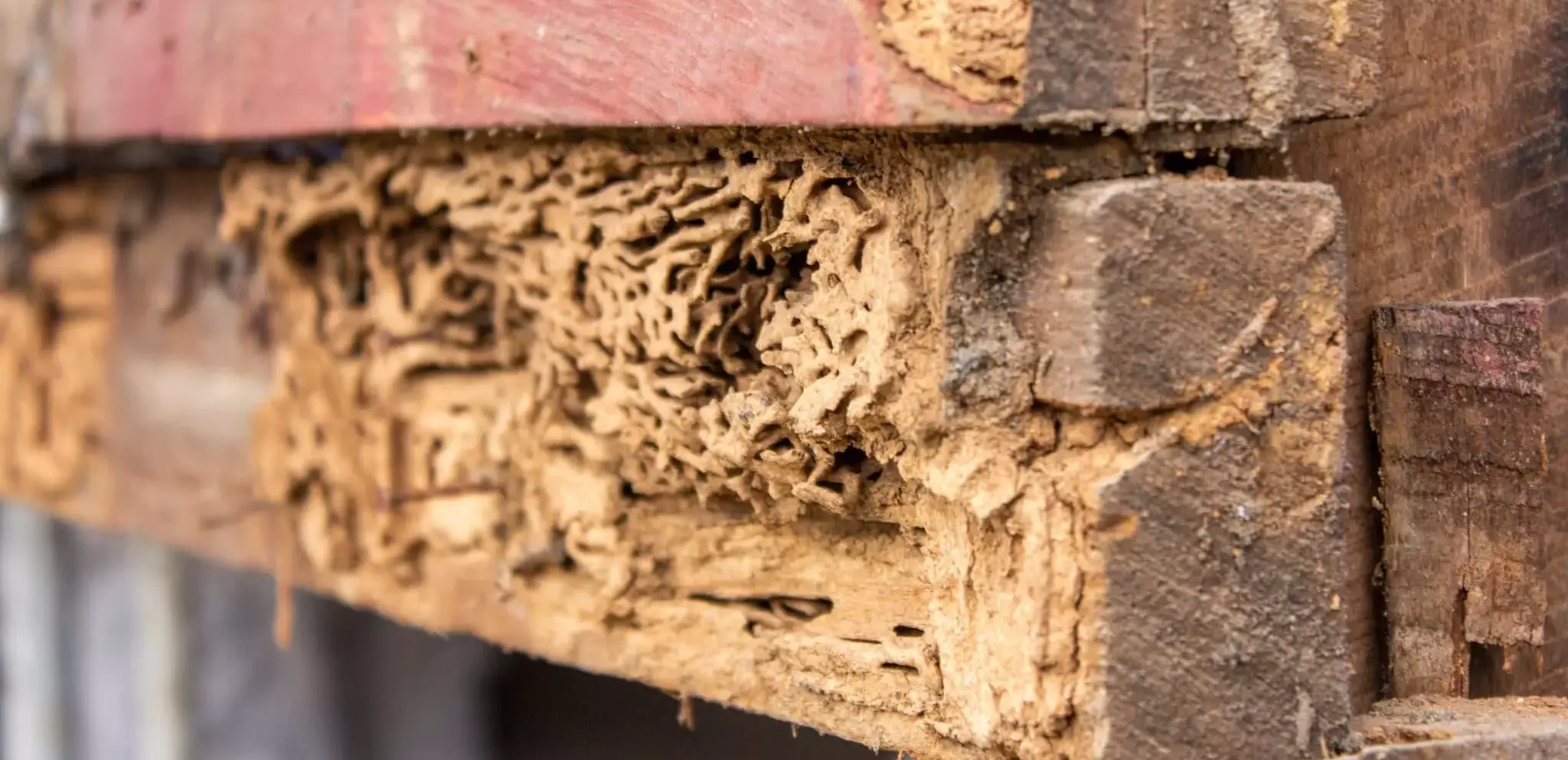Services Offered by Termite Inspection Companies
Knowing what services termite inspection companies provide can assist you in making an educated selection that fits your immediate and future needs. Many providers offer annual termite assessments with preventive treatments for consistent protection. Depending on your circumstances, this may be more valuable than treating termites only once.
Exterior Inspection
As they go through their inspections for termites, inspectors look for visible damage around your home’s exterior. They pay close attention to anything meeting the earth, outdoor wood, and damp places where moisture could attract termites, such as the following- Cracks in expansion joints
- Deadwood
- Firewood stacks
- Pooling water around the foundation
- Standing water on the roof
- Wood mulch close to the foundation
- Wooden deck supports
- Wooden fences
Interior Inspection
When evaluating for termites, specialists often pair the exterior inspection with a meticulous interior inspection. This inspection concentrates on damp areas, potential entry points, and anywhere with wood or cellulose materials. They may inspect the following:- Attics
- Basements
- Crawl spaces
- Doorframes
- Exposed beams or studs
- Exterior walls
- Hardwood floors
- Under-sink cabinets
- Windowsills
- Wooden furniture
Treatment Recommendations
If termites are detected in your home, your pest control professional will recommend a personalized treatment plan to eradicate the termites effectively and safely. Alternatives to chemicals are available, including physical barriers, heat, and biological control methods like beneficial nematodes. The Environmental Protection Agency (EPA) oversees common chemical treatments including liquid termiticides and baits. Liquid termiticides permeate the earth around your house to form a protective barrier. Baits contain cellulose laced with slow-acting insecticide. If you need a more intensive treatment, you can schedule fumigation. Fumigation requires vacating your home, sealing it, and flooding it with a gas that’s lethal to termites. To resolve your current termite issue, the pest professional might recommend a multipronged strategy.Future Vulnerabilities
Complete termite inspections assess for areas prone to termites and evaluate current activity. Inspectors check for leaks, wood-to-soil contact, and other conditions that might attract termites to your house. An inspection may reveal drainage issues or termite entry points that need landscaping or structural improvements. Making these changes can help avoid future infestations.Continuous Monitoring
Termite solutions sometimes need regular inspection, replacement, or reapplication to stay effective. Many pest control providers offer continuing service plans that include quarterly or yearly inspections for this reason. As part of this monitoring, technicians check for signs of new or increased termite activity. A professional will also replace baits and reapply liquid termiticides as needed. This lessens the risk of extensive damage. These services frequently come with a warranty.Termite Warranties
Termite inspectors frequently back their services with reservice warranties. These warranties cover the cost of extra visits to address the termite issue should they reappear in a set time period following the original service. Some exterminators offer extra protection with a repair warranty. This covers repairs for any new termite damage following treatment.Factors To Consider When Choosing a Termite Inspector
Make sure to consider the following factors when hiring a termite inspector.- Cost: Obtain quotes from at least three providers. Keep in mind that companies may not be able to give you an accurate estimate without an on-site inspection.
- Experience: How long a company has been in business can indicate its trustworthiness and experience. More years in the field usually translates to more experience dealing with termite invasions.
- Guarantees: Look for inspectors who offer warranties or guarantees including reservice and repairs. Ask for these policies in writing for your records.
- Licensing and insurance: In Montana, pesticide applicators must hold a commercial applicator's license from the Montana Department of Agriculture. You should also verify that the company is properly insured. Anyone who applies restricted-use pesticides must be registered as an applicator by the EPA.
- Reputation and reviews: Customer satisfaction on the Better Business Bureau (BBB) and other online platforms, as well as personal recommendations, all offer useful perspectives on service quality. Companies with good reviews tend to provide excellent service overall.




